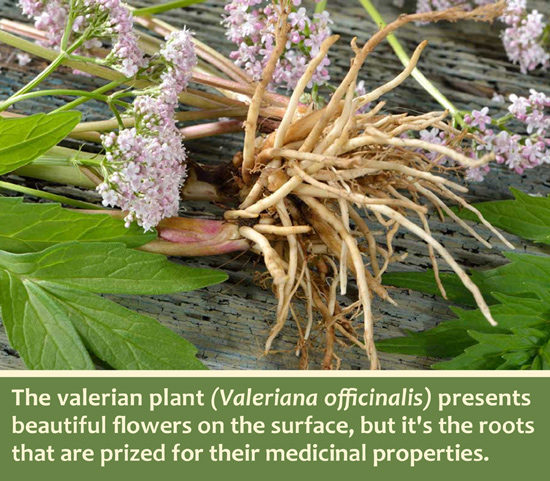According to a new study conducted by Indian researchers, valerian root supports different aspects of sleep quality—including the time it takes to fall asleep and time staying asleep.
The researchers reported the benefits of valerian root begin as soon as three days after the start of supplementing.
The benefits also include improvements in mood during the waking hours of the day.
The randomized, double-blind, placebo-controlled trial adds to the two millennia of anecdotal evidence that valerian root provides sedative-type benefits.
Valerian root background
Valerian (Valeriana officinalis) is a floweing perennial plant native to parts of Europe and Asia. The plant boasts a long history of medicinal use that extends back to ancient Greek and Roman cultures. It is also a long-established medicinal in the Ayurvedic medicine system in India.
It is primarily the root of the plant that is dried and used as an herbal remedy.
While valerian has been used extensively as a sleep aid, it has also been used for upper respiratory problems, pain relief, skin problems, and cramps.
Even in the United States, where the medical establishment frowns on herbal alternatives, valerian root is recognized as a traditional dietary ingredient to support sleep.
Likewise, in the European Union, the European Medicines Agency recognizes the well-established uses of valerian for the “relief of mild nervous tension as well as sleep disorders.”
In the current study, the Indian researchers noted that globally valerian root is “the most preferred alternate sleep solution to manage sleep complaints.”
Valerian root’s sedative benefits lie in its active compounds called valerenic acids. The three valerenci acids are: valerenic acid, hydroxyvalerenic acid and acetoxyvalerenic acid. Most of the research focuses on valerenic acid.
Notably, valerenic acid has been shown to bind to GABA receptors which, in turn, help suppress the nervous system.
Study details
The study, conducted in Karnataka, India, included 72 healthy men and women between the ages of 21 and 48 with self-reported sleep issues.
The study period was eight weeks, during which participants were administered either a placebo or 200 mg of valerian root extract one hour before bedtime.
The participants took part in regular study visits to monitor outcomes related to sleep quality and occasional anxiety.
The industry-standard tests used to measure sleep changes included the Pittsburgh Sleep Quality Index, Wrist Actigraphy, and Polysomnography. For assessing anxiety the researchers relied on the Beck Anxiety Index.
Using these widely recognized systems, the researchers reported substantial improvements for the extract-taking participants.
“Our results… showed significant improvements in overall sleep quality, latency, efficiency, total sleep time, decreased anxiety and daytime sleepiness, and increased feeling refreshed after waking up in young subjects with mild insomnia symptoms and without comorbidities,” the researchers wrote in the study conclusions.
Commenting on valerian root safety, the researchers added, “The safety and tolerability of valerian extract was confirmed by the safety assessments in the study subjects.”
It should be noted that the study was sponsored by a valerian root extract manufacturer; however, the study was stictly monitored in a blinded fashion and the results were published for peer review. The study was also registered with the Clinical Trials Registry of India.
The study was published in Advances in Therapy in October 2023. A PDF with full study details can be downloaded here.
Valerian root extract is one of the synergistic ingredients found in Optimal Calm by Optimal Health Systems. Click the banner ad on this page to learn more.
– – –
Sources: Advances in Therapy, American Botanical Council, Wikipedia-valerinic acid.



